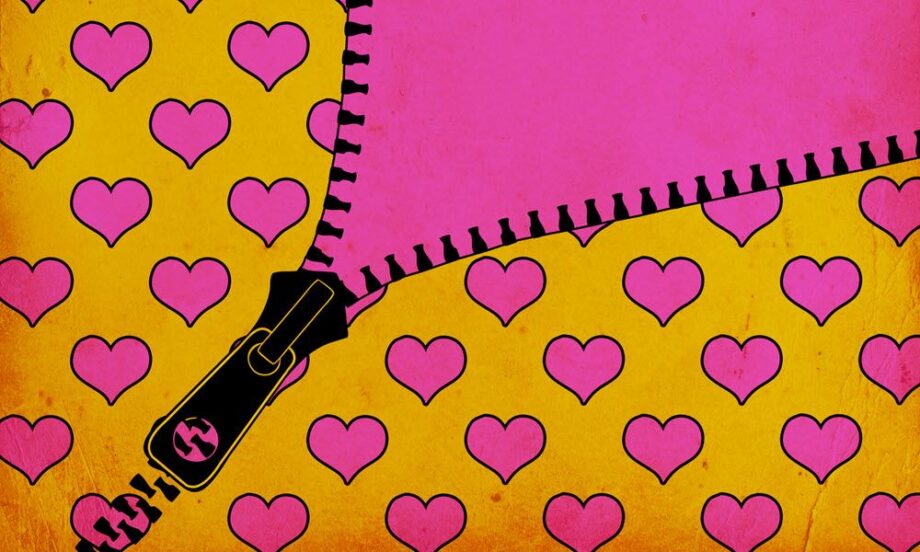Sex education
It Took More Than 30 Years – and a Divorce – for Me to Discover the Sexual Side of Myself
Once we realize that sexual education is a lifelong pursuit, we can move past the awkward questions, fears of what’s “normal,” and faked pleasure to find something deeper and more meaningful - or at the very least more orgasms and better sex.
“Mom, what’s sex?”
“We aren’t talking about that. Ever.”
And so began my halting journey into sexual education. I started asking questions when I was eight. My mother refused to talk about it. My school told me abstinence was the best option and glossed over condoms. No one talked about making my own pleasure a priority. It’s no wonder I didn’t have an orgasm until I was 32.
In the absence of good information, we’ll make it up for ourselves. If we realize that sexual education is a lifelong pursuit, we can move past the awkward questions, fears of what’s “normal,” and faked pleasure to find something deeper and more meaningful - or at the very least more orgasms and better sex.
Sex Education in School Was Only Slightly Better Than Nothing
When I was 15, I moved to Mississippi. One of the most rural parts of the Deep South, it’s known for being at the top of the list for teen pregnancies and at the bottom of the list for literacy. It’s a state considered (rightly or wrongly) 20 years behind the rest of the country. What it’s not known for, then or now, is it’s sexual education.
Prior to the move, I’d lived in a state that offered sex ed (known as “Health”) beginning in the fourth grade. Boys and girls were separated for an hour once or twice each week. I don’t know what the boys talked about, but we talked about shaving, maxi pads and acne. It wasn’t until I was a teenager that we talked about sex.
I learned the mechanics of sex. Tab A (the penis) is inserted into Slot B (the vagina). I understood how babies were made. I was properly scared of letting another's person's sexual organ touch an orifice of mine due to the threat of disease and babies. I knew condoms existed, although not how to use them. What I mostly knew was that as long as you never had sex, you could never get sick or pregnant (which isn’t strictly true).
At the time that I moved to Mississippi, they didn’t even offer abstinence-only education in most schools. Although the academic education stopped at that point, the rest of my sexual education was only beginning.
Sexual Curiosity Can’t Always Be Scared Out of You
As a teenager, I remember being terrified to let a boy touch any part of my body because I was afraid of how it made me feel. I’d learned that uncontrolled sexual pleasure could lead to ruin and a life of hell (supposedly). My life would be “over” if I got pregnant or a disease, although I admit pregnancy was a bigger fear than an STD.
Maybe that fear was a good thing as a teenager, maybe not. I know it stifled me for many years. I wasn’t even comfortable touching myself and only tried to masturbate one time.
But I was an anomaly.
I had male friends who referred to themselves (happily) as “male whores” for all of their conquests. My boyfriends, and some who weren’t, pushed and pressured me to go further, let them do more. Everyone does it. It’s OK. It’s safe.
My girlfriends were experimenting and playing too. We might whisper in the bathroom about pregnancy fears, but very few were stopped from going out again and having sex, or nearly so, with the guy they liked. Although our teachers and religious leaders were preaching death, ruination and, in some cases, damnation for our sexual urges, those threats did little to curb the natural and healthy sexual curiosity of teenagers. It was a curiosity I rarely acted on.
Letting “Life” Get in the Way of Sexual Pleasure
By the time I was 18, I’d lost my virginity and my fear. At 19, I was engaged and while I didn’t want to be pregnant yet, this was the guy I was going to spend my whole life with. It would be OK. We were going to get married eventually. Let’s fuck!
I quickly learned that I loved having sex, even when I never enjoyed an orgasm. I didn’t know sex was supposed to be better than it was. I thought faked orgasms were normal. I loved the freedom I felt. I loved the moments of pleasure. I definitely liked the surprise on his face when I said or did something that only “bad girls” did.
Like most couples, especially after we got married and had kids, “life” got in the way. Kids, work, stress and a bad marriage took its toll. We rarely had sex and when we did, it wasn’t satisfying, at least not for me. It was a negotiation tactic. I’ll suck your cock if you wash the dishes. He promised to make it quick and offered to vacuum.
It wasn’t healthy, but according to all of my married friends, it was normal.
The excitement of the early days of sex were long gone. The fears of pregnancy and STD scares were gone. There was no sizzle. There was no exploration. We had little desire to learn anything new about sex, pleasure, or each other. It wasn’t until I figured out that I didn’t want to have sex with him anymore that I was willing to make a change.
Teaching Myself What I Should Have Learned as a Kid
I didn’t divorce my ex over bad sex, but it was a symptom of a bigger problem I could no longer ignore. After the divorce, there was the rebound guy who fucked me in exciting new positions. There was the old high school fling who’d been good with his tongue back in the day and improved like a fine wine. There was the discovery of kink and BDSM.
Once I was single, I felt free to start exploring.
Learning to masturbate was huge. It was something I should have done as part of a normal, healthy teenager. Sure, no one talked about it when I was that age, but I later learned that most people did it anyway. Certainly in my 20s, my friends were masturbating. By then, many of them had upgraded to toys.
I had to start from scratch to fully understand my own sexuality.
Your World Expands When You Understand Your Own Sexuality
I’ve said it before: masturbation and orgasms won’t make you a kinky sex blogger like me. Yet, once you get the first taste of sexual pleasure, ever or in years, you want more. It’s a craving more powerful than just about anything.
Part of it, I think, is realizing that we deserve this pleasure. It’s ours for the taking. We’re not bad, evil, immoral, or wrong for feeling it. When we experience pleasure with another consenting adult, we learn that we’re not alone in our needs.
When you find the person (or people) you trust, you can open up even more. With trust, love, and support, in whatever form it takes, you can try a new toy, experience a fantasy, give in to a secret fetish, or get involved with kink. You can explore the depths of your sexuality in ways you never thought possible. You’ve got a safe place to be your most sexual self, which is a beautiful thing.Understanding our sexuality is a life-long journey. With each new partner and at different stages in life, our wants and needs will change. We’re better off when we realize that what we knew about sex at 16 is much different than what we know at 36 or 56. It would be nice if our early education was more complete than what is offered today, and I have high hopes that we’ll get there one day. Until then, the best thing we can do for our own sexuality is to never stop learning about it.




